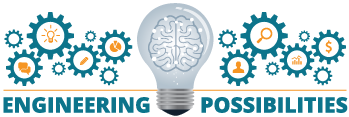The pursuit of operational excellence often leads manufacturing companies to seek the guidance of a Lean Consultant. The decision to bring in external expertise is a strategic move that can propel a company towards efficiency, cost-effectiveness, and sustainable improvement. In this blog post, we explore 12 essential considerations a manufacturing company should engage with before hiring a Lean Consultant.
- Expertise and Industry Knowledge
A critical consideration is the consultant’s expertise and knowledge within the manufacturing industry. A successful partnership hinges on a consultant’s deep understanding of manufacturing processes, challenges, and industry-specific nuances. Look for a consultant with a proven track record in similar environments.
- Lean Methodology Proficiency
The core competency of a Lean Consultant lies in their mastery of lean principles and methodologies. Assess their proficiency in tools such as Value Stream Mapping, 5S, Kanban, and Kaizen. A consultant well-versed in the intricacies of lean practices ensures a more effective and tailored approach to your unique challenges.
- Proven Track Record
An accomplished consultant should present a portfolio of successful lean implementations and measurable improvements achieved in previous engagements. Request case studies, testimonials, or references from their past clients to validate their effectiveness and impact.
- Cultural Fit
The integration of lean principles often involves a cultural shift within the organization. Assess the consultant’s ability to understand and align with your company culture. A harmonious fit ensures smoother collaboration and a higher likelihood of successful implementation.
- Communication Skills
Effective communication is pivotal in any consulting engagement. A skilled Lean Consultant should possess the ability to convey complex concepts in a clear and understandable manner. Additionally, they should excel in listening to the unique challenges of your organization and tailor their approach accordingly.
- Customized Approach
Manufacturing companies vary in size, structure, and operational intricacies. A successful Lean Consultant tailors their approach to meet the specific needs and challenges of your organization. Avoid one-size-fits-all solutions and seek a consultant capable of crafting a customized strategy.
- Training and Knowledge Transfer
A key aspect of a Lean Consultant’s role is to empower your team with the skills and knowledge to sustain lean practices in the long run. Inquire about their approach to training and knowledge transfer to ensure that your team gains the expertise needed for continuous improvement.
- Change Management Expertise
Implementing lean practices often involves significant organizational change. A skilled Lean Consultant should be well-versed in change management principles, guiding your organization through the transition with minimal resistance and maximum engagement.
- Measurable Metrics and Results
Before entering into a consulting arrangement, establish clear and measurable metrics for success. A reputable Lean Consultant will collaborate with you to define key performance indicators (KPI’s) and benchmarks, ensuring that the impact of their interventions can be quantified.
- Flexibility and Adaptability
Manufacturing environments are dynamic, and challenges may evolve over time. A consultant’s ability to adapt their strategies and recommendations in response to changing circumstances is crucial for long-term success.
- Cost-Benefit Analysis
While the cost of hiring a Lean Consultant is a factor, it should be viewed in the context of the anticipated benefits and long-term returns. A consultant capable of providing a clear cost-benefit analysis helps in evaluating the investment’s viability. Ask about performance guarantees and promises and incorporate those agreements into your consulting contracts.
- Long-Term Partnership Potential
A successful lean transformation is often an ongoing journey. Consider a consultant who demonstrates a commitment to building a long-term partnership. This commitment ensures that the benefits of lean practices continue to unfold over time.
Hiring a Lean Consultant is a strategic decision that can significantly impact the trajectory of a manufacturing company. By carefully considering factors such as industry expertise, methodology proficiency, proven track record, cultural fit, communication skills, customized approach, training methods, change management expertise, measurable metrics, flexibility, cost-benefit analysis, and long-term partnership potential, companies can make informed choices that align with their goals for operational excellence. A well-selected Lean Consultant becomes a valuable ally in navigating the complexities of lean transformations, fostering continuous improvement, and steering the organization toward lasting success.


Recent Comments